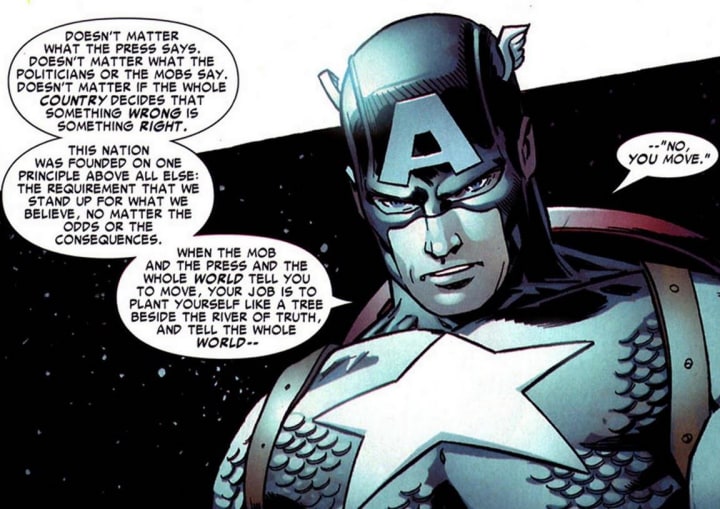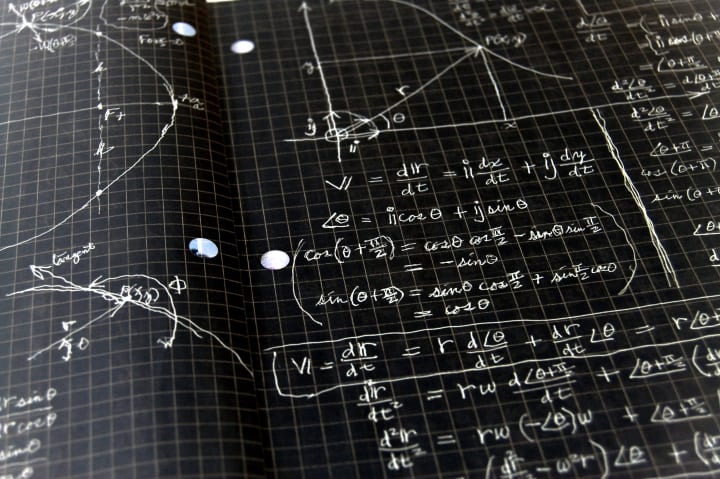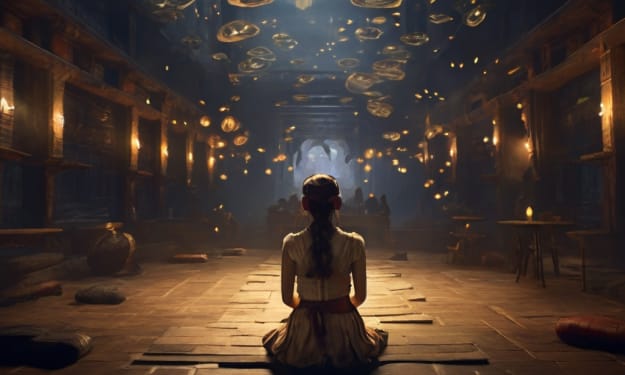Tips For Writing RPG Character Conversions
Because They're Harder Than You Think

Anyone that's ever played a tabletop roleplaying game has had that urge to recreate one of their favorite characters from pop culture. From literal dark knights that look a great deal like Gotham City's own caped crusader, to massive mountains of muscle that bear a striking resemblance to one of the greatest villains in Game of Thrones, it's something we've all done at least a time or two.
Designers included.
Something I've noticed when we talk about making these character conversions, though, is that not all of us are having the same conversation. This often leads to players talking past one another, rather than actually having helpful, useful discussions regarding execution of their concepts. And since my Character Conversion archive currently has 60 complete guides for characters ranging from Ghost Rider to Guts, and from Abraham Lincoln to Gregor Clegane, I figured that I'd pull the curtain back and talk about my process for making a character conversion.
If you find this useful, and you're looking for more gaming tips and tricks, don't forget to check out my blog Improved Initiative, and to take a look at the rest of my Vocal archive. And for all of my various follow-ables, make sure you stop by my Linktree as well!
Step One: Decide on The Character

The first thing you need to do for a character conversion is, of course, to decide which character you're going to convert. However, this can be trickier than we think a lot of the time because so many characters have so many different representations in media, or they change over the course of their story arcs in meaningful ways.
For example, say you wanted to convert Jason Voorhees as a character. Are you making the living version from earlier films, or the undead version from later on in the series? If you want to make your own version of Tyrion Lannister, are you going to stay faithful to the character as he's written in the book, or are you looking to keep more to the version we saw Peter Dinklage play on the show? This becomes even more important when you have characters from long-running stories, or from comic books where they've been re-tooled and re-imagined so many different times that there really are specific eras of the character that can all color the final result.
Be as specific as you can in this part of the process. It saves you a lot of grief later on.
Step Two: Analyze The Character

This is the part where a lot of disagreements start happening among folks making character conversions, which is why I find this one of the more important steps. Once you know which character you're converting, and which specific version of that character you're aiming for, you need to break them down to their essential building blocks.
In other words, ask what is it about them that needs to be present in the conversion in order to accurately represent them?
For example, take a character like Bane. His main, identifying feature is that he can inject himself with a potent steroid and grow incredibly strong for a mortal man. He's a skilled combatant, and a canny strategist. You could even take this a step further, and insist that because the character exists in a world of magic, but his Venom is not magical, that it must be duplicated using science in order to remain true to the character (or alchemy, in the case of my conversion guide).
These specifics are the parameters you set for your character conversion going forward. They are, in a very real sense, the design specifications you're building toward, while also following all the rules of the game itself. This also gives you a must-have list which can ensure that whenever you discuss a conversion with someone else that they know what building blocks are specifically required, which can stop arguments about X, Y, or Z aspects that will come up in step three.
Step Three: Select An Appropriate Build

Once you fully understand the character, and you have the parameters and requirements for your conversion set up, all that's left is to comb through the game to find the necessary elements to make them.
Something that should be stated at this point is that not every game is going to have the support you need to make every kind of character. Or, if that support does exist, then it may not be at a practical level for the character you're converting.
A perfect example of this is my Iron Man conversion for Pathfinder. Because while Pathfinder does have options for creating and building advanced technology (including having rules for powered armor), the level requirements to access it puts it beyond the scope of most average campaigns that aren't starting at epic levels. As such, my recommendation for the build focuses on a wizard archetype that gives you bonuses to crafting constructs, and on expanding the features of construct armor, as that's something that can be done more effectively and efficiently, even if it doesn't fit the ethos of a strictly high-tech hero to just swap out science with magic.
As a counterpoint, while Pathfinder has several options for a mild-mannered character who morphs a creature of great physical might (as I pointed out in my Incredible Hulk conversion), the 5th Edition of Dungeons and Dragons doesn't give you a lot in the way of options to really manage that feat. While it has the Path of The Berserker, that doesn't really give you the full Hulk treatment; you don't change size, you don't shift your physical being, you aren't considered more than one person sharing a body, etc. You can add those things in as flavor (and a lot of players do), but there is no rules support for those aspects. So if you had those as required aspects of the character, you simply won't be able to fulfill them with this particular game as it's written (though there may be some third-party content out there that does give you what you want, if you dig deep enough).
Final Tip: Don't Twist Too Hard

There are a lot of advantages to character conversions. They can be a fun mental exercise, they can provide a pre-made foundation for a character concept, and they can allow you to test the flexibility of a game system to see just what it will and won't handle. This is the main reason why "inappropriate" characters are so often converted. Because making a superhero in a superhero RPG, or Indiana Jones in a pulp RPG, isn't a test of the system; it's literally what it was designed to do, so there's no fun or challenge to doing that.
With all of that said, if you're going to use a converted character in your game, make sure that you at least file off the serial numbers and make it your own (provided you're not playing a game where thinly-veiled homage is the theme, and thus the whole point). And if it turns out that a given game really won't support a particular concept either thematically or mechanically (Call of Cthulhu really isn't the place to try to make someone like Thor, for example), don't try to ram the square peg into the round hole.
Trust me, there's no faster way to ruin the game for yourself, and for the rest of the table around you.
About the Creator
Neal Litherland
Neal Litherland is an author, freelance blogger, and RPG designer. A regular on the Chicago convention circuit, he works in a variety of genres.
Blog: Improved Initiative and The Literary Mercenary
Reader insights
Outstanding
Excellent work. Looking forward to reading more!
Top insights
Compelling and original writing
Creative use of language & vocab
Easy to read and follow
Well-structured & engaging content
Expert insights and opinions
Arguments were carefully researched and presented
Eye opening
Niche topic & fresh perspectives
Masterful proofreading
Zero grammar & spelling mistakes
On-point and relevant
Writing reflected the title & theme






Comments
There are no comments for this story
Be the first to respond and start the conversation.